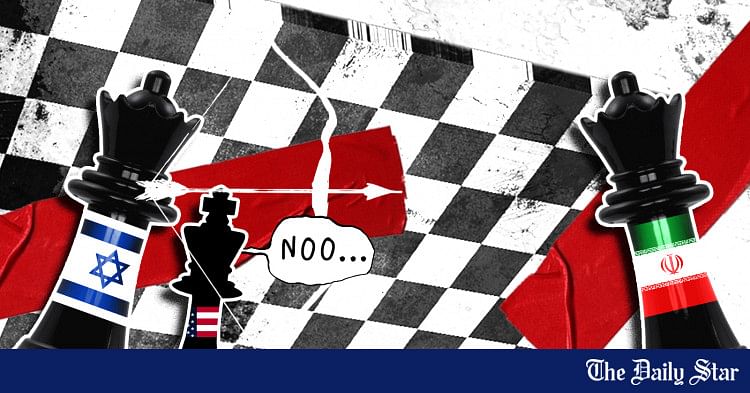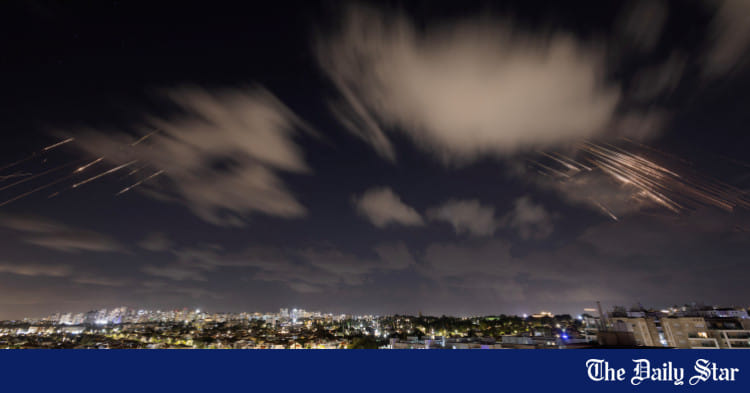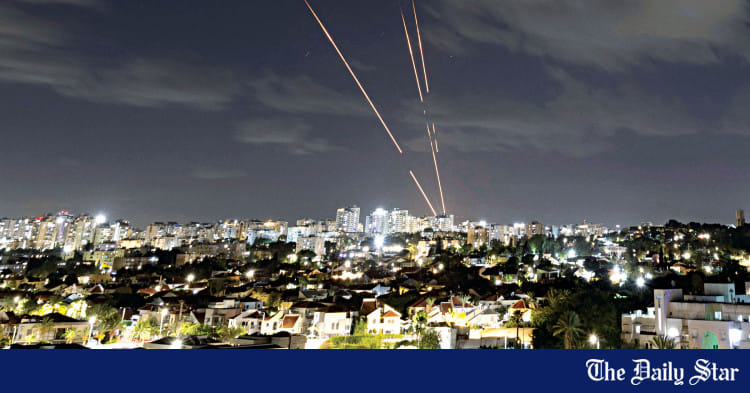Saif
Senior Member
- 13,746
- 7,411
- Origin

- Axis Group

Iran warns of 'consequences' of Israeli attacks on Lebanon
Agence France-Presse . Tehran 28 July, 2024, 13:56

Israeli security forces gather near a site where a reported strike from Lebanon fell in Majdal Shams village in the Israeli-annexed Golan area on July 27, 2024. | AFP photo
Iran on Sunday warned Israel that any new military 'adventures' in Lebanon could lead to 'unforeseen consequences'.
Israel blamed Tehran-backed Hezbollah for a deadly rocket strike in the Israel-annexed Golan Heights.
'Any ignorant action of the Zionist regime can lead to the broadening of the scope of instability, insecurity and war in the region,' said foreign ministry spokesman Nasser Kanani.
He added that Israel will be responsible for 'the unforeseen consequences and reactions to such stupid behaviour'.
Hezbollah, which on Saturday claimed multiple attacks on Israeli military positions following a deadly raid on southern Lebanon, has denied responsibility for the rocket fire that Israeli authorities said killed 12 people including children in the Druze town of Majdal Shams.
Kanani accused Israel of pinning the blame on Hezbollah 'to divert public opinion and world attention from its massive crimes' in the Gaza Strip, where war has raged since October 7.
He added that Israel 'does not have the least moral authority to comment' on the deaths in Majdal Shams, on the Golan Heights which the country seized from Syria in 1967 and later annexed in a move not recognised by the United Nations.
Iran does not recognise Israel and has made support for the Palestinian cause a centrepiece of its foreign policy since the 1979 Islamic revolution.
The Islamic republic has hailed Hamas's October 7 attack on Israel that sparked the Gaza war but denied any involvement.
Agence France-Presse . Tehran 28 July, 2024, 13:56
Israeli security forces gather near a site where a reported strike from Lebanon fell in Majdal Shams village in the Israeli-annexed Golan area on July 27, 2024. | AFP photo
Iran on Sunday warned Israel that any new military 'adventures' in Lebanon could lead to 'unforeseen consequences'.
Israel blamed Tehran-backed Hezbollah for a deadly rocket strike in the Israel-annexed Golan Heights.
'Any ignorant action of the Zionist regime can lead to the broadening of the scope of instability, insecurity and war in the region,' said foreign ministry spokesman Nasser Kanani.
He added that Israel will be responsible for 'the unforeseen consequences and reactions to such stupid behaviour'.
Hezbollah, which on Saturday claimed multiple attacks on Israeli military positions following a deadly raid on southern Lebanon, has denied responsibility for the rocket fire that Israeli authorities said killed 12 people including children in the Druze town of Majdal Shams.
Kanani accused Israel of pinning the blame on Hezbollah 'to divert public opinion and world attention from its massive crimes' in the Gaza Strip, where war has raged since October 7.
He added that Israel 'does not have the least moral authority to comment' on the deaths in Majdal Shams, on the Golan Heights which the country seized from Syria in 1967 and later annexed in a move not recognised by the United Nations.
Iran does not recognise Israel and has made support for the Palestinian cause a centrepiece of its foreign policy since the 1979 Islamic revolution.
The Islamic republic has hailed Hamas's October 7 attack on Israel that sparked the Gaza war but denied any involvement.

























